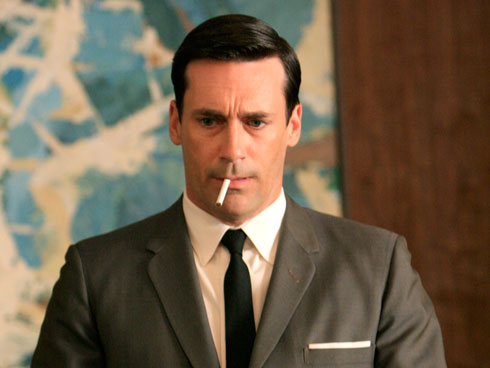“The day you sign a client is the day you start losing him.” – Donald Draper, Mad Men
For the past 10 years I have tried to break into the athlete representation industry. I’ve had a few internships over this time, including working for IMG in their sponsorship division. I’ve also had a brief stint interning for a company that represents Australian Football League (AFL) clients.
However, my experience is resoundingly trumped by many unsuccessful interviews. After the formalities the interview always turns sour after one specific question: Can you bring any clients to the firm?
My answer, of course, is no. It’s almost paradoxical the position I am put in. An agency won’t hire me because I have no clients, yet in many cases I wouldn’t be coming to a firm if I had clients.
This leads me to the debate of new clients vs. new business.
I have heard agents complain about the lack of opportunities out there for their clients. Bad timing, poor market conditions; Excuse after excuse for not servicing clients to their full potential. Clients don’t want excuses, they want results.
I’m not talking about playing contracts in sports such as football or basketball. I understand there is a finite number of spots on a roster and no matter how hard you push a client, the team may simply not have room for them. I’m talking about off the field. There are endless opportunities. Individual sports such as Tennis, Golf and Athletics. Even many who are involved in team sports are looking for income outside of their playing contract, especially those on the lower end of the wage scale.
What it boils down to is this: If you can’t find opportunities for your clients, create them. Think outside the box. There is no hard and fast rule to representation. Yes, it is easy for me to say this having not represented a client before. I do believe that the majority of agents are working 24/7 in the best interests of their athletes. Some are just not being creative, and that isn’t necessarily their fault.
I am currently working on a multitude of ideas that could work at both small and large firms, using talent from a wide range of sports. Ideas that I believe would bring in a whole new revenue stream to a business. However, this is hard to convey in interviews. As I have previously said, in my experience, most of the time the agent has switched off after the answer to the aforementioned question. While I can’t bring an agent a footballer or a tennis player, what I can bring is ideas. Some may be good, some may be bad, but in an industry where an athlete has a relatively short career, any idea is worth listening to.
Bottom line is that some agencies undervalue creativity, thinking a new client is the only way to bring in new business. This is untrue. As Donald Draper suggests, the hardest part is what happens after you sign them.

One reply on “New Clients Vs. New Business”
Chris,
I totally understand. First, I started my own agency and writing for SAB. I focus on female/women athletes in college, WNBA, WNBA draft, and tennis. I could not recruit daily on a regular basis because I had to support my family working a nine to five until I was more established in the industry.
I sought out relationships with coaches and executives in the WNBA. I began to build relationships with individuals at the U of Minnesota. I interviewed with ladies seeking agent representation but they signed with the experienced agents. Nothing panned out for me. I was frustrated.
In February 2012, The New York Times Magazine featured women competing to make the USA Women’s Boxing team to represent the USA in the London 2012 games. For the first time in history, women’s boxing was being acknowledged as a competitive event in the Olympics. I watched all of the features and relished in the stories of each athlete. Immediately, I could see this particular young lady’s talent and passion plus her story touched me deeply. I called some friends I knew lived in Flint, MI and connected with the athlete’s coach/manager.
I didn’t fathom my first client would be a female boxer. Anyway, after she won GOLD at London Games, she expected endorsements to fall into her lap. Doesn’t happen for most female athletes or most Olympians. Anyway, I had written a marketing plan for her based on career path, branding, image, etc. I knew what to expect from the industry. I started with scheduling speaking engagements and appearances (she can get paid). I scheduled a media tour in NYC and met with organizations interested in supporting women and teens.
Ultimately, I had to think outside of the box to secure my first client. Thinking outside of the box afforded me the opportunity to create other ways for my client to make money as she continued to build image and brand herself in a sport most organizations in the US do not support or view as being profitable.
Anyway, I feel your pain. This is a very competitive industry. Some agents will promise these athletes the world to sign them without really thinking about how to market their client.